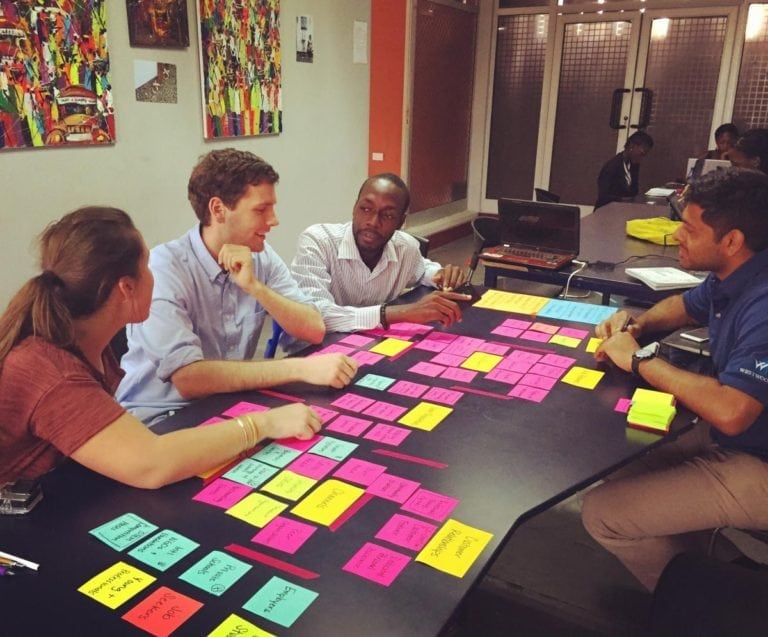It seems that at nearly every store and bakery in Malawi, the southeast African country, there is a bread slicer that is missing one of its blades. Maybe it snapped off. Maybe it got lost. Maybe it got jury-rigged into a knife for the butcher to use at the same store. But you can bet that one of those blades is gone, which means every loaf cut by that bread slicer has at least one double-thick slice.
At this store, it’s the 3rd one from the end of every loaf:
While this isn’t exactly a critical problem, it says something about not-quite-working technology. Everything breaks eventually. And when things do break, a whole system needs to be there to identify the problem and resolve it. Someone needs to notice the missing blade in the machine, be able and willing to buy the part(s) to fix the problem, and know how to install the new blade.
To use an example more relevant to the context of technology and development, someone needs to know that a water pump is broken, identify the cause, have the funds and knowledge and incentive and supply chain to buy the parts needed, and have the trust of the users to take the pump apart to fix it.
Everything breaks eventually.
Or know when a water filter needs to be replaced, have the funds and incentive and store to buy a replacement filter at those times, and install it correctly.
Or know when the teacher isn’t showing up to school any more, have the gas money or phone credit to figure out what’s going on, the authority to apply appropriate consequences or incentives or solutions, and maybe another teacher who can fill the gap.
A mobile phone app will stop working when the person checking its data retires and there isn’t money to place a help-wanted ad in the paper.
Every solar panel system needs maintenance. Every low emissions cookstove can crack. Every mobile phone app stops working when the phone stops working, or when the person checking in on the data from the app retires and isn’t replaced because there isn’t money to place the ad in the paper to advertise the position.
Every technology needs a system working to support it. Technology might bubble up good development indicators, but those bubbles burst every time the systems behind the technology aren’t robust enough to keep it working. Technology is fun, but the system supporting it is the critical piece.
Kristina Nilsson is a Program Director for the WASH (Water Sanitation and Hygiene) Catalysts initiative of Engineers Without Borders in Malawi. Since 2011, she has worked with this initiative on sustainable service delivery. She is currently working with Malawi’s Ministry of Water to strengthen their governance models and improve coordination among the donors and NGOs in the sector.



thanks for your post Kristina! I’d like to SHare two other recent blog posts on WASH that have a similar although not exactly the same critique. I wrote this one about Low-Tech Design http://www.triplepundit.com/2016/05/low-tech-design-can-fuel-sustainable-development-goals/
and I really enjoyed this post on the importance of Capacity Building http://washfunders.org/Blog/the-business-case-for-capacity-building?utm_content=buffer123ce&utm_medium=social&utm_source=twitter.com&utm_campaign=buffer
Thanks for these! I’ll offer a friendly reminder that low-tech still needs a system behind it too: when a bio-sand filter gets dry, I understand that the bacteria can die, so something will have to be done to maintain the set-up. Tippy-taps need a corresponding behaviour-change to value handwashing. And internet access to watch a video about new lights isn’t good enough where I am in Malawi, so someone would have to teach me directly. All of which isn’t to say that those aren’t great technologies that are more likely to work than something more complicated – just that even the simplest things still need some supports!